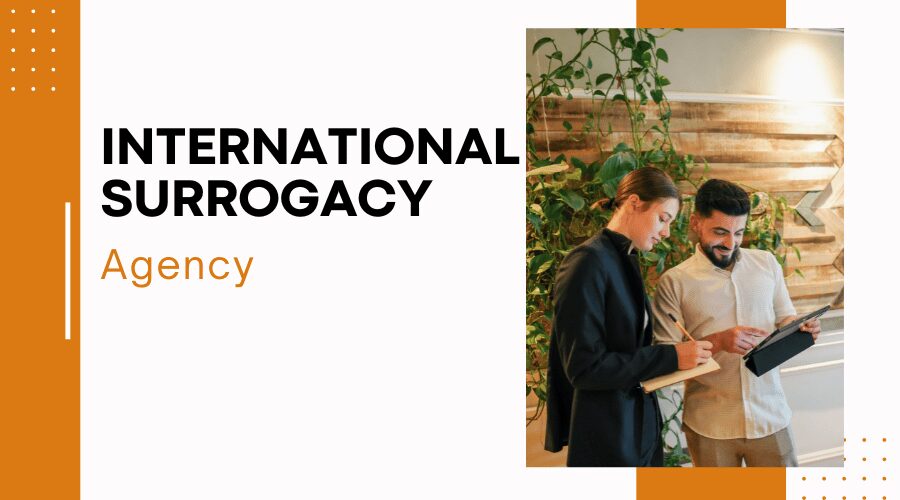Surrogacy in Germany Explained: Laws, Options & Alternatives

Surrogacy in Germany is a complex and highly regulated topic that raises many questions for intended parents, both local and international. With strict laws that prohibit commercial surrogacy and limit assisted reproduction services, Germany remains one of the more conservative European countries in this field. If you’re considering surrogacy as a path to parenthood, it’s essential to understand what is legally permitted, what risks are involved, and what alternative options are available abroad.
Are you a German citizen thinking about surrogacy to expand your family? It’s key to grasp the legal hurdles of this family-building option. Germany’s strict rules on reproductive medicine, set by the Embryo Protection Act of 1991, make surrogacy tough.
Yet, there might be ways for German citizens to explore surrogacy abroad. Understanding the laws is the first step to successfully starting your surrogacy in Germany or abroad.
Key Takeaways
- Surrogacy is strictly prohibited in Germany due to the Embryo Protection Act, which limits reproductive medicine to only a woman’s own eggs and pregnancy.
- German law recognizes the birth mother as the legal mother, complicating surrogacy arrangements where the intended parent(s) are not the birth mother.
- While surrogacy services are not available in Germany, the German Supreme Court has recognized the parental rights of intended parents using international surrogates.
- Many German citizens turn to surrogacy-friendly countries like the United States to fulfill their family-building dreams, as surrogacy is legal and regulated in most US states.
- Thorough research and the selection of a reputable international surrogacy agency are essential for German intended parents to navigate the legal complexities and ensure a safe, ethical process.
Additional Guide for Surrogacy Cost:
How Much Does Surrogacy Cost in the USA?
Surrogacy Costs Breakdown for Intended Parents
Why Surrogacy Costs So Much And How To Manage It?
How Much Does Surrogacy Cost Using a Family Member?
Get in touch for a Free Surrogacy Consultancy:
📲 +91-8800481100 ( WhatsApp, Line, Viber)
Is surrogacy legal in Germany?
Surrogacy is a tricky legal issue in Germany. The country’s Embryo Protection Act (Embryonenschutzgesetz or ESchG) makes all surrogacy, both for money and free, illegal. Breaking the law can lead to up to three years in jail or a big fine.
The Adoption Placement Act (Adoptionsvermittlungsgesetz or AdVermiG) also limits surrogacy. It stops people from looking for surrogate mothers and placing them. But, surrogate mothers and those wanting a child through surrogacy are safe. Those who help set up surrogacy deals can get in trouble.
The Embryo Protection Act Explained
The ESchG was made in 1990. It’s meant to protect embryos and stop women from being taken advantage of in surrogacy. It has strict rules for using reproductive tech, with big penalties if broken.
Prohibitions and Restrictions
- All surrogacy, paid or free, is banned in Germany.
- The Adoption Placement Act stops looking for surrogate mothers and placing them.
- Those who help with surrogacy can get in trouble, but not the surrogate or the intended parents.
Legal Consequences for Involved Parties
Doctors who help with surrogacy can still get in trouble. They are not safe from the law. Helping with surrogacy is seen as a crime in Germany.
| Country | Surrogacy Legality | Penalties |
| Germany | Illegal | Up to 3 years in prison or fines |
| Georgia | Legal | No specific penalties |
| Australia | Altruistic surrogacy legal, commercial surrogacy illegal | Varies by state, with penalties ranging from fines to imprisonment |
Surrogacy in Germany: Key Legal Challenges
Exploring surrogacy in Germany is filled with legal hurdles. The country’s laws, based on the Adoption Placement Act and the Embryo Protection Act, are strict. They affect both intended parents and surrogate mothers.
One big challenge is getting legal recognition as parents. This is especially true when returning to Germany with a child from international surrogacy. Parents need a court ruling from the surrogacy state or to adopt in Germany. It’s important that at least one intended parent is genetically related to the child.
The legal situation for surrogacy in Germany is unclear. Courts look at each case and what’s best for the child. This makes it hard to know what to expect. Sometimes, adoption is needed if foreign legal guardianship isn’t recognized.
It’s key to talk to lawyers when dealing with Germany’s surrogacy laws. The strict rules aim to stop international surrogacy. This makes the process hard and requires careful planning.
| Challenge | Implication |
| Recognition of Intended Parents | Establishing legal guardianship through foreign court rulings or adoption in Germany |
| Genetic Descendance Requirement | Easier for legal father if married to surrogate, more complex for legal mother |
| Inconsistent Case Law | Courts consider individual circumstances and child’s best interests |
| Stringent Regulations | Surrogacy is a criminal offense, making it operationally difficult |
In summary, Germany’s laws on surrogacy are complex and strict. Intended parents must work closely with lawyers to navigate these rules. This is essential for a successful and ethical surrogacy journey.

International Surrogacy Options for German Citizens
Surrogacy is not allowed in Germany, but many Germans look abroad to start a family. The United States, especially California, Ukraine, and Georgia, are top choices. These places offer legal support and top-notch medical care for surrogacy.
Legal Requirements for Foreign Surrogacy
International surrogacy laws can be tricky for Germans to understand. They must follow the laws of both the country where they plan to have a child and Germany. Agencies like Growing Families help guide them through this, focusing on the child’s legal status and return to Germany.
Surrogacy in Georgia (Country)
- Process: Georgia offers a well-regulated and streamlined surrogacy process, supported by reputable clinics and agencies.
- Legal: Surrogacy is legally allowed for heterosexual married couples, with legally binding contracts ensuring clarity and protection.
- Eligibility: Intended mothers must provide proof of infertility to qualify.
- Cost: The average cost ranges between $50,000 and $75,000, significantly more affordable than U.S. options.
- Process: Ukraine provides dependable medical facilities and professional surrogacy services for a smooth journey.
- Legal: Surrogacy is legal for heterosexual married couples, with parental rights clearly assigned after birth.
- Eligibility: Couples need to present a marriage certificate and medical evidence of infertility.
- Cost: Programs typically cost $50,000 to $60,000, depending on inclusions.
- Process: Armenia is becoming a popular surrogacy destination due to its affordability and expanding medical infrastructure.
- Legal: Surrogacy is legally recognized, with parental rights transferred to intended parents at birth.
- Eligibility: Available to married heterosexual couples with a medical indication for surrogacy.
- Cost: Costs range between $55,000 and $65,000, making it ideal for budget-conscious families.
- Process: Colombia is home to experienced clinics and growing expertise in fertility treatments.
- Legal: Surrogacy is allowed, though legal frameworks vary; agreements are established through private contracts.
- Eligibility: Open to all couples and individuals, including same-sex couples.
- Cost: Surrogacy costs typically range from $60,000 to $80,000, depending on case complexity.
- Process: Mexico is a longstanding surrogacy hub, offering high-quality medical care.
- Legal: Surrogacy laws vary by state, with Tabasco and Sinaloa being popular options for both heterosexual and same-sex couples.
- Eligibility: Open to most couples and individuals; state-specific requirements may apply.
- Cost: Programs are cost-effective, typically ranging between $55,000 and $80,000, and provide proximity to the U.S.

- Process: While surrogacy in Argentina is relatively new, it is gaining attention for its affordability and favorable legal environment.
- Legal: There are no specific surrogacy laws; arrangements are made via private contracts, with parental rights established after birth.
- Eligibility: Open to heterosexual couples, same-sex couples, and single parents.
- Cost: The cost ranges between $50,000 and $75,000.
- Process: India was once a top surrogacy destination but now permits only altruistic surrogacy for Indian citizens.
- Legal: Commercial surrogacy is banned; only Indian heterosexual couples can pursue surrogacy under strict regulations.
- Eligibility: Restricted to Indian heterosexual couples who can provide medical proof of infertility.
- Cost: Surrogacy is unavailable for international couples due to legal constraints.
This reformatted content preserves all essential details while presenting them in a clean, professional layout. Let me know if further adjustments are needed!
Surrogacy cost in Germany
Germany has a unique legal view on surrogacy. It is banned in the country. This makes the cost of surrogacy in Germany irrelevant. But, for those looking into international options, costs vary greatly.
Surrogacy Costs Around the World
The United States is often the priciest for surrogacy, with costs from $100,000 to $150,000 or more. On the other hand, Eastern European countries like Ukraine and Georgia are more affordable. They offer surrogacy for about $50,000 to $60,000.
| Country | Surrogacy Cost Range | Savings Compared to the USA | Key Highlights |
| USA | $100,000–$200,000 | N/A | Highest cost globally due to advanced healthcare and legal frameworks. |
| Georgia | $40,000–$55,000 | 50–80% | Legally secure, gestational surrogacy allowed for married heterosexual couples. |
| Ukraine | $40,000–$60,000 | 50–75% | Well-regulated surrogacy market with clear legal rights. |
| Armenia | $35,000–$50,000 | 55–80% | Cost-effective with strong parental rights at birth. |
| Colombia | $60,000–$80,000 | 20–60% | Inclusive for all couples, including same-sex. Private agreements govern surrogacy. |
| Mexico | $50,000–$70,000 | 30–65% | Lower costs in specific states like Tabasco and Sinaloa. |
| Argentina | $40,000–$60,000 | 50–75% | Flexible eligibility criteria; costs depend on private agreements. |
| India | Not available internationally | Not applicable | Restricted to Indian citizens under altruistic surrogacy laws. |
These costs can change based on the clinic, agency, and legal needs in each country. Surrogacy packages usually cover the surrogate’s pay, medical bills, legal fees, and more.
“Ukraine is considered the cheapest state for infertility treatment, offering affordable and fixed prices for comprehensive surrogacy programs.”
Even though surrogacy is banned in Germany, knowing the costs in other countries helps. It aids in making choices for building a family.

Gay surrogacy in Germany
Gay surrogacy in Germany has big legal hurdles. Same-sex couples can’t adopt in Germany, except for their partner’s kids. But the 2014 case changed things. A gay couple won a case at the German Supreme Court, getting their California-born child recognized.
This victory helped pave the way for some foreign surrogacy arrangements to be recognized.
Single Parents Surrogacy in Germany
Single parents in Germany also face tough laws on surrogacy. They can’t have a child through surrogacy in Germany. So, they must look abroad for this option.
Finding Surrogates in Germany
Finding surrogates in Germany is against the law. The Embryo Protection Act makes it illegal. This means Germans looking for surrogacy must look to other countries where it’s legal. You might like to opt for countries where surrogacy is legal to do your surrogacy program within the legal framework.
Even with legal challenges, recent court wins have brought hope. These victories offer a glimmer of recognition for foreign surrogacy. Those exploring this option should do their homework and understand the laws of their chosen country.
Conclusion- Surrogacy options for German citizens
Surrogacy is a complex and debated topic in Germany. The country mostly bans it under current laws. Yet, the new government might allow altruistic surrogacy. This means Germans wanting to use surrogacy often look to other countries.
Even with these hurdles, some progress has been made. Courts have accepted foreign surrogacy and the rights of children born through it. But the path to parenthood through surrogacy is tough. It requires careful planning, legal advice, and trips to places like the U.S. or Canada.
The debate on surrogacy laws in Germany is ongoing. For those wanting to start a family through surrogacy, it’s crucial to understand the legal challenges. They must be ready to face the complexities and push for more support in Germany.
We are leading International Surrogacy Industry Experts with more than 15 years of global experience and expertise. Get in touch with us about affordable, reliable, and legal surrogacy options.
📞 Get in Touch for a Free Surrogacy Consultation
📱 +91-8800481100 (WhatsApp | LINE | Viber)
📧 neelam@ivfconceptions.com
🌐 www.ivfconceptions.com
💫 Why Intended Parents Choose IVF Conceptions for a Safe, Smooth & Successful Surrogacy Journey:
- 🌍 Access to multiple surrogacy destinations with 15+ years of international experience
- 🏥 Partnerships with top-tier fertility clinics and agencies, backed by references from past clients
- 👩🦱 Diverse egg donor options: Asian, Caucasian, African, Oriental, and more
- 💸 Transparent and affordable pricing—direct payments with no extra agency fees
- 🔒 No hidden costs—all charges are agreed upon upfront
- 🤝 Dedicated case manager for personalized support
- 📲 Fast, honest, and clear communication throughout
- 📑 Full legal support for visas, documentation, and baby exit processes
- 🧬 Complete access to medical records of donors and surrogate mothers
- 🚚 Assistance with frozen sperm/embryo shipment logistics
- ❤️ A compassionate team with deep experience in managing complex surrogacy programs worldwide

FAQs for surrogacy in Germany
What is the legal status of surrogacy in Germany?
In Germany, surrogacy is banned by the Embryo Protection Act of 1991. This law limits reproductive medicine to using one’s own eggs for IVF. It makes the birth mother the legal mother, making surrogacy arrangements complex.
What are the legal consequences for parties involved in surrogacy in Germany?
Breaking the Embryo Protection Act can lead to up to three years in prison or fines. The Adoption Placement Act bans finding surrogate mothers and placements. However, surrogate mothers and intended parents are not punished. But, medical staff helping with surrogacy can face legal trouble.
What are the key legal challenges for surrogacy in Germany?
A big challenge is recognizing intended parents, especially with children born abroad. Establishing legal guardianship can involve foreign court rulings or adoption in Germany. It’s important that at least one intended parent is genetically related. Courts look at each case individually, focusing on the child’s best interests.
Where do German citizens seek surrogacy services?
Due to German laws, many seek surrogacy abroad. The US, especially California, and countries like Ukraine and Georgia are popular. Each country has its own legal rules, with US agencies offering support and legal advice.
What are the typical costs for surrogacy for German citizens?
Since surrogacy is banned in Germany, the costs for it don’t apply. But, abroad, costs differ a lot. In the US, it can be pricey, while places like Georgia and Ukraine are cheaper. In Germany, medically assisted conception costs about 10,000€ on average.
Can gay couples and single parents pursue surrogacy in Germany?
Gay couples face big legal hurdles in Germany. They can’t adopt in most cases, except for their partner’s kids. Single parents also have limited options. Since finding surrogates in Germany is illegal, they must look abroad.
Source Links
- https://en.wikipedia.org/wiki/Surrogacy_laws_by_country – Surrogacy laws by country
- https://se-legal.de/schlun-elseven-lawyers/family-law-germany/surrogacy-in-germany-expert-family-law-advice/?lang=en – Surrogacy in Germany: Expert Family Law Advice
- https://surrogate-motherhood.com/surrogacy-in-germany-legislation – Surrogacy in Germany – legislation
- https://www.growingfamilies.org/alternate-family-building/ – Alternate Family Building Europe · Growing Families


